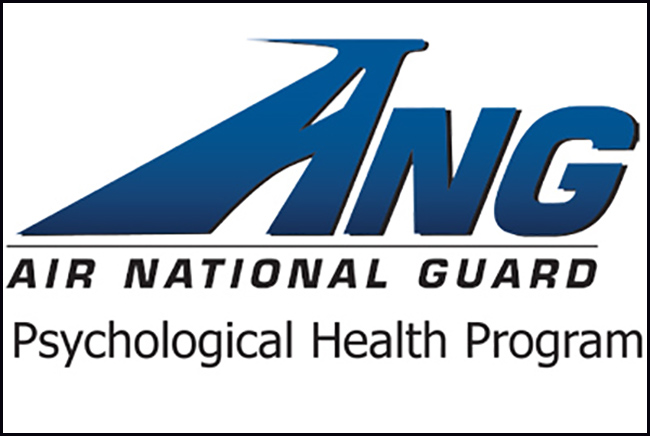
The Air National Guard's Psychological Health Program is working to better support ANG wings at elevated risk of suicide, family issues and other harm. ANG graphic.
The Air National Guard’s Psychological Health Program is driving personnel changes aimed at helping 15 wings found to have the highest risk for suicides, family issues, and other harm, according to a July 11 briefing at JB Andrews, Md.
Nine new psychological health director positions were added in fiscal 2018 to better support airmen who serve in high-risk wings, and the ANG program plans on adding another six in fiscal 2021. Psychological health directors are stationed within all 90 ANG wings, and 90 of the 104 total positions are now filled, according to the presentation.
Stephanie Powell, an ANG psychological health branch principal, program advisor, and analyst, told Air Force Magazine the program could add more than six directors to serve Guard airmen in 2021, depending on whether demand for their services grows.
A wing is deemed “high-risk” based on its mission and pace of operations during deployments, its divorce and unemployment rates, illegal drug use, sexual assault claims, and more, the presentation explained. The designation also accounts for other statistics, such as the number of people a wing’s psychological health director sees, the ratio of directors to servicemembers, and how far a treatment facility is from the wing.
The 15 wings seen as having the highest risk are:
- 159th Fighter Wing, NAS-JRB New Orleans, La.;
- 174th Attack Wing, Hancock Field ANGB, N.Y.;
- 172nd Airlift Wing, Thompson Field ANGB, Miss.;
- 153rd Airlift Wing, Cheyenne ANGB, Wyo.;
- 193rd Special Operations Wing, Harrisburg International Airport, Pa.;
- 136th Airlift Wing, NAS Fort Worth JRB, Texas;
- 145th Airlift Wing, Charlotte ANGB, N.C.;
- 124th Fighter Wing, Gowen Field ANGB, Idaho;
- 173rd Fighter Wing, Kingsley Field ANGB, Ore.
- 194th Wing, Camp Murray, Wash.;
- 171st Air Refueling Wing, Pittsburgh International Airport, Pa.;
- 127th Wing, Selfridge ANGB, Mich.;
- 101st Air Refueling Wing, Bangor ANGB, Maine;
- 121st Air Refueling Wing, Rickenbacker ANGB, Ohio; and
- 195th Wing, Beale AFB, Calif.
Two wings—Louisiana’s 159th Fighter Wing and Washington’s 194th Wing—now have dedicated behavioral health teams to assess, triage, and stabilize airmen dealing with combat-related or traumatic stress, the presentation said. These seven-person teams include a clinical psychologist, clinical social worker, and five enlisted mental health technicians.
Twenty behavioral health teams are deployed throughout the ANG as part of an initiative that promotes “full-spectrum medical readiness.”